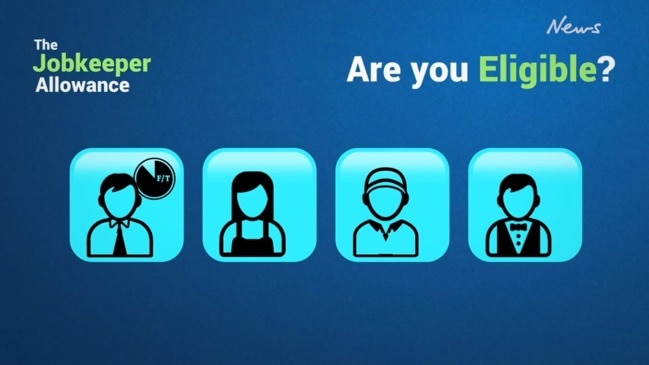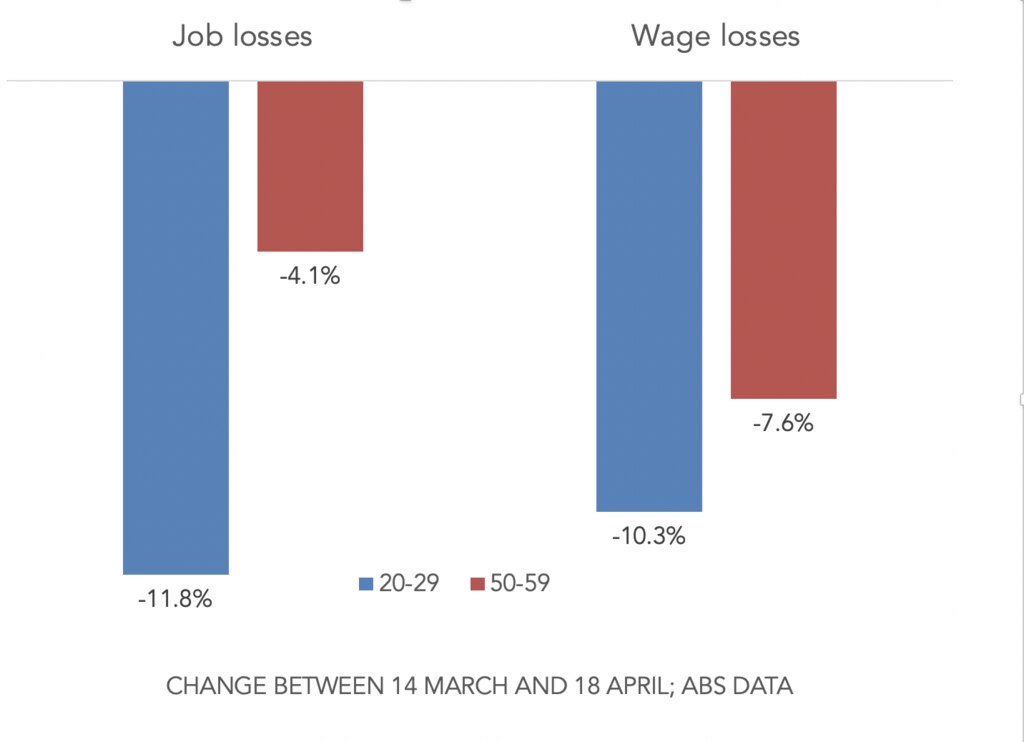Coronavirus economic impacts: Younger people could suffer worse economic impacts from COVID-19 pandemic
We’ve been told repeatedly the elderly are most at risk from coronavirus – but there’s another age group the pandemic really screws.

Hoping your boss quits to play golf and you get their job? Not going to happen. Promotions at work will be few and far between for millennials as older workers refuse to vacate their positions, gumming up the job market.
The stock market crash amid the COVID-19 pandemic has been incredibly fast and has blown a major hole in Australian’s retirement savings. Spare a thought for all those greying professionals with a spreadsheet tracking down the exact moment they can afford to retire comfortably. They are now being forced to recalculate – and the spreadsheet is telling them they need to stay in work a lot longer.
That’s tough news for them, and it means more frustration for the young. More old people staying in work means even less opportunity to move up the corporate ladder.
GENERATION BROKE
The COVID-contraction is already causing a lot of pain for younger workers, with a great fire tearing through the hospitality industry and entertainment industries where many young people work.
Many young employees are not even eligible for JobKeeper payments, as they are casuals of less than 12 months standing.
Job losses and wage losses have been concentrated among the young, as the next graph shows.
RELATED: Virus tips jobless rate above expectations
RELATED: Another 100,000 Aussies deferred loans this week alone

Even if those people get back into jobs, their career progressions will be dented because older workers will now be hanging onto their jobs for grim death.
On Friday the ABS released a whole lot of data on the retirement intentions of Australians. It might as well go straight to the science-fiction section of the library, because the data is all from BC (before COVID-19).
The ABS surveyed people over 45, and found half a million Australians intended to retire in the next five years. A bit over two million people intend to retire some day. There were are also around half a million people who never intend to retire, as the next graph shows.
The number of people who never intend to retire is now likely a lot higher than that graph implies. But sadly, retirement is not always a choice. Many older people lose their job, look for work for a few years, and then go straight from unemployment to retirement. Older workers often have a very hard time finding a new job.
But you can bet that unemployed older workers will be in hot competition for every job that is listed, because you can’t get the pension until you turn 66. Finding the right policy settings for this time is important. We don’t want to make it even harder than necessary for older people to retire. This would, for example, be a tough time to lift the pension age.
The age at which Australians can access the age pension has been steadily increasing. It is due to lift once again to age 66 and a half, on 1 July 2021. That change will only keep older people in the workforce longer, and further slow the employment prospects of the young. The government might be wise to consider the merits of temporarily postponing that change.
(Super, by the way, doesn’t have the same access rules. You can first access your superannuation at age 60, if you were born after 1965; and at age 55 if you were born before 1960; with a sliding scale in the middle.)
The impact of the coronavirus is skewed by age – it attacks the oldest most. But the impact of the economic contraction has been skewed the other way – it is younger people who are suffering the most. The recovery phase needs to acknowledge this inequality and make sure younger people get a leg up.
Jason Murphy is an economist. He is the author of the new book Incentivology. Continue the conversation @jasemurphy




